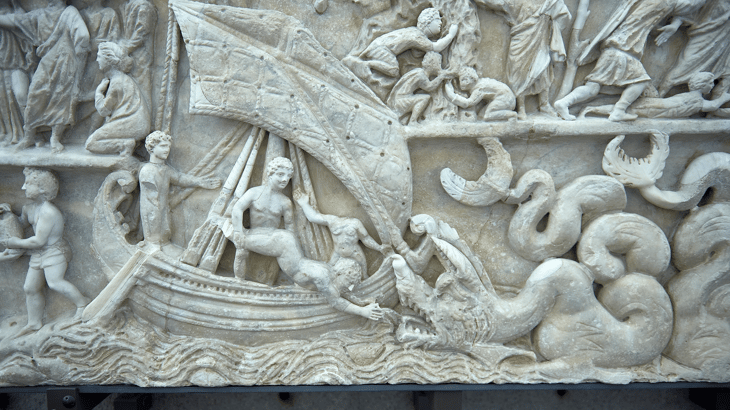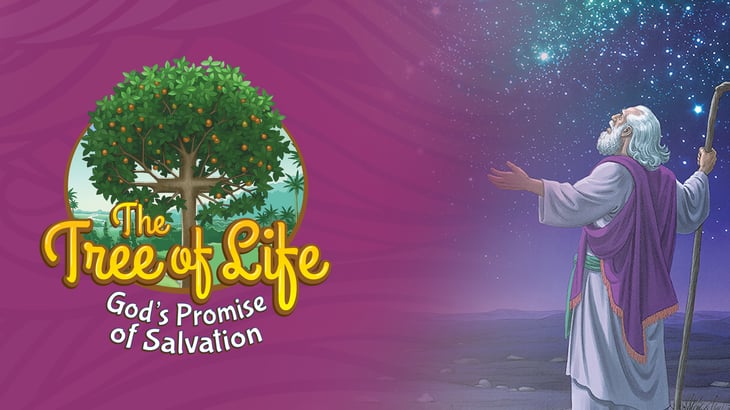What I Wish I Knew before Teaching My First Lesson
My very first time teaching a classroom lesson was at a small Lutheran school in St. Paul, Minnesota. I was working with a class of about ten eighth-graders, helping them identify active and passive voice in writing. If you’re not an English nerd, you’re probably thinking, “Wow, what a boring lesson!”
How Jonah Foreshadows Our Deliverance through Christ
As part of Confession and Absolution in the Sunday morning liturgy, we acknowledge before God and one another that we have offended the Lord not only in what we have done but also in what we have failed to do. We can, and often do, sin by neglect. The inclusion of this type of confession is so insightful and powerful. It is insightful in the sense that we more often notice and remember our sins of commission—the things we do—rather than things we don’t do.
5 Must-Reads for Lutheran Teachers
There are a lot of professional-development books out there, but few are written specifically for the Lutheran teacher. Take a look at some of the suggestions below. They include books on teaching students and teaching the faith, so every challenge and question can be touched on.
What I Wish I Knew before Attending My First LCMS Youth Gathering
It’s upon us again. The time when youth are scrambling to pack, leaders are double-checking transportation, and committees are reviewing who goes where and when. This summer, a buzz of excitement, an incoming swarm of matching backpacks, and the jokes, prayers, and songs of thousands of high schoolers are descending on the city of Houston for the LCMS Youth Gathering.
Influencing Children’s Identity through Electronic Technology
Little has had a more dynamic impact on contemporary culture than electronic technology. I would argue that electronic technology is our feeble human attempt to copy God’s astonishing creation of our capability to communicate who and whose we are. This creative package includes the brain and its extended nervous system components, including the eyes, ears, mouth, nose, and communication modifiers—memory, emotions, and body posture, to name a few.
How to Select a Trustworthy Children’s Bible
Children’s Bibles serve a useful purpose in our homes. From the time our firstborn was four months old (in other words, when we emerged from our sleep-deprived fog enough to realize it was possible to start an intentional bedtime routine), we have read Bible stories with our children before bedtime. We started with an illustrated beginner’s Bible, moving up to Bibles with more of the stories and more details as our kids get older. Now we go back and forth between the Bible and storybook Bibles (as we have a wider range of ages in our family).
Found Faultless in Christ
Phil Rigdon shares his teaching observations on our God-given talents, skills, and abilities while reminding us that Christ remains all sufficient for us.
Getting Started with Enduring Faith Religion Curriculum
As another school year comes to a close, many Lutheran schools are already starting to order curriculum for next year. This year, we’re excited to offer the all-new Enduring Faith Religion Curriculum. Use this post as a quick reference guide to work through some of the key features of the new curriculum.
Technology as a Tool at School
How can technology further the mission of a Christian school? Digital tools are part of the landscape, so here are some observations of how they might be best used in the classroom.
5 Reasons You Should Use The Tree of Life for Summer Sunday School
Have you considered using The Tree of Life: God’s Promise of Salvation for summer Sunday School instead of VBS this year? Yes, I know this might be a surprising question considering I just wrote a post about all the ways to use The Tree of Life for VBS, but hang with me!
The fact of the matter is that one size doesn’t fit all, and no two churches have the same summer needs. The Tree of Life may not be the best fit for VBS, but it could be the perfect match for your summer Sunday School. So, here we go! Here are five reasons you should totally consider using The Tree of Life for Sunday School this summer.






.jpg?width=50&height=50&name=IMG_20220621_160541_456%20(1).jpg)


















